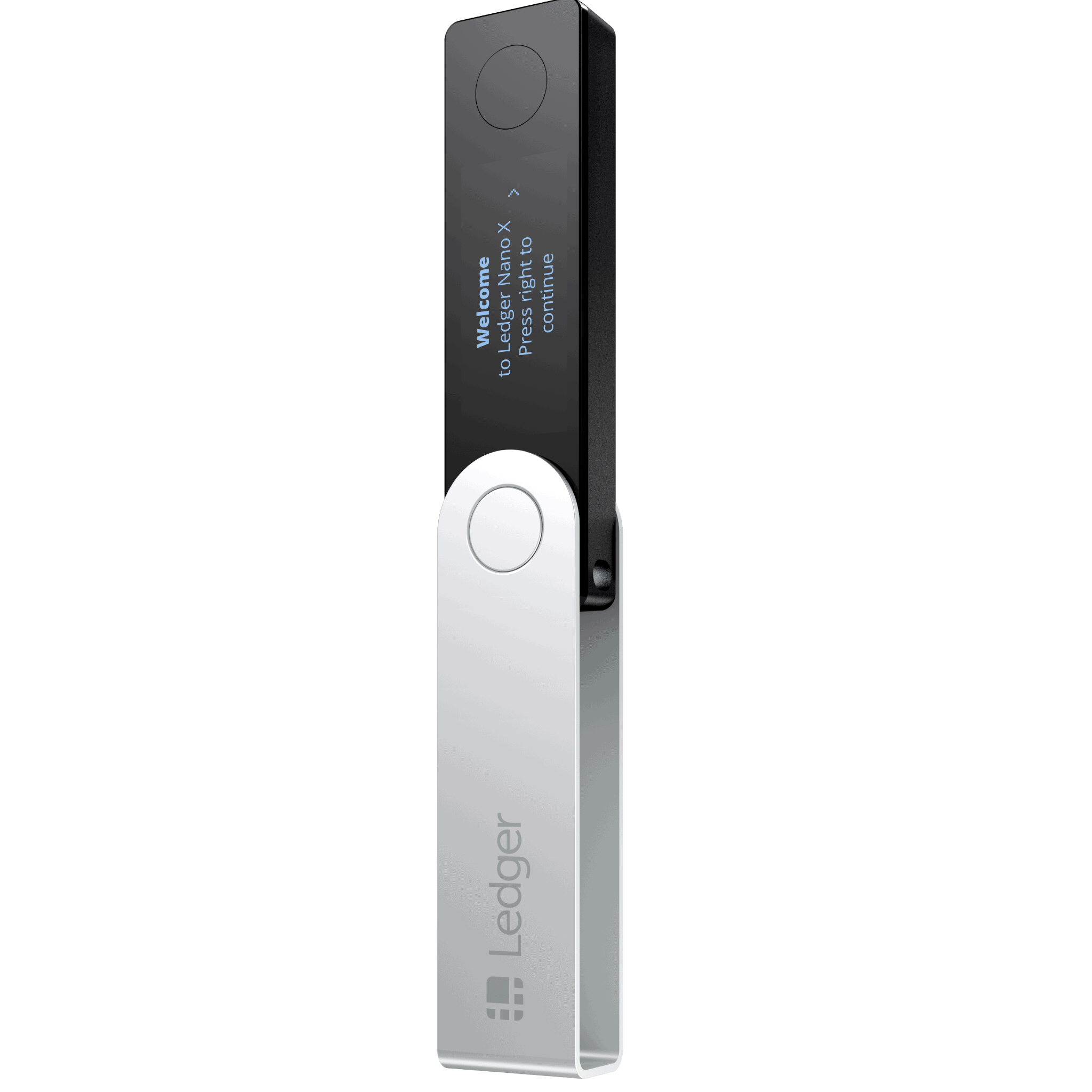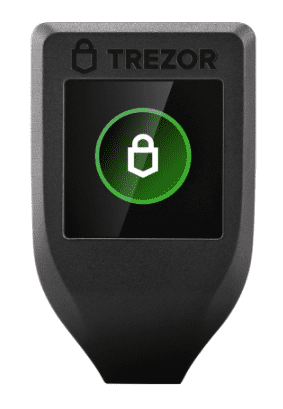Many people think of a crypto wallet just like a regular wallet, in that you hold your cryptocurrency in it. While it is similar to a normal wallet, by keeping your funds safe, it doesn't actually store your cryptocurrency. Cryptocurrencies are stored on the blockchain, which is a global decentralized database. Instead of storing your crypto, your wallet has a unique address where your crypto can be found on the blockchain, and it holds the private key to unlock that blockchain address.
Best cryptocurrency wallets in 2024
| Crypto Wallet | Features | Score | Get Wallet |
|---|---|---|---|
Best crypto wallet overall  | ☑️ The most secure crypto wallet available ☑️ No seed phrase vulnerability, and guaranteed account recovery ☑️ FREE to download on iOS and Android | 9.9 | Download WalletSee Review |
Best hardware wallet  | ☑️ Extremely secure hardware wallet to store your crypto offline ☑️ USB and bluetooth connectivity to connect to phone or computer ☑️ Compatible with Ledger Live desktop and mobile apps | 9.8 | Buy WalletSee Review |
Runner-up hardware wallet  | ☑️ Extremely secure hardware wallet with touchscreen to verify and approve operations ☑️ USB connectivity to computer and Android phones ☑️ Over 1,200 coins supported | 9.7 | Buy Wallet |
Wallet Types
There are four different types of cryptocurrency wallets that you should be using. Ideally, you should choose the one that best matches your cryptocurrency needs. Avoid using web wallets, and always pick the safest wallet type to minimize the risk of losing your cryptocurrencies.
The Best Hardware Wallets
Ledger (Nano S Plus and Nano X): This is the most popular wallet brand worldwide with two different models to choose from. The Nano S Plus is the less expensive option, but the larger Nano X wallet is often more convenient for those who make transactions between multiple cryptocurrencies often. The Nano X supports Bluetooth 5.0. However, you should bear in mind that Ledger was targeted by a cyberattack in July 2020 leading to a data breach of approximately over 270,000 pieces of detailed information such as postal addresses, names, and telephone numbers. However, no coins were stolen as hackers did not gain any access to private keys.
Trezor (Model One and Model T): Trezor is another very popular hardware wallet brand. The Trezor Model One is the more affordable alternative, while the Model T is the advanced option that comes with a range of extended functionalities. It has additional support for cryptocurrencies like XMR, ADA, and XTZ.
Despite the fact that hardware devices are very secure, the weakest link here is always the user. Wherever possible, you should avoid buying used hardware wallets.
The Best Mobile and Desktop Wallets
Zengo Crypto Wallet: This is the most secure cryptocurrency wallet available. It does not have any private key vulnerability, and there is no need to keep a record of a recovery seed phrase. There is guaranteed account recovery using 3 factor authentication. To learn more about Zengo, read our detailed review, or download Zengo crypto wallet here.
Exodus: This is a very user-friendly, easy to understand and reliable wallet. Right now, it is the most popular desktop wallet and is available for Windows, Mac and Linux. It is also available on Android and iOS.
Atomic: This is another reliable, user-friendly mobile and desktop wallet that supports over 500 cryptocurrencies and allows staking various cryptos. It is available for Windows, Mac, Linux, iOS, and Android.
There are various reliable mobile or desktop wallets to choose from, but these three have been proven to be the easiest to use and the most user-friendly.
Whatever wallet you choose, always be cautious and double-check everything. Make sure that your devices are malware-free and be careful when clicking on emails that appear to be from cryptocurrency exchanges.
Why Do You Need a Cryptocurrency Wallet?
Getting a cryptocurrency wallet is important as keeping your cryptocurrencies on an exchange is not always secure. While you can store your cryptocurrencies on exchanges like Binance or Coinbase, with this option, you do not actually own these coins since you do not have the keys to the wallet they are stored in. While you can easily gain access to the coins by logging into the exchange, your account could be deleted or hacked, meaning that your funds could disappear forever.
So, what are the keys to a wallet where you own your own coins? A public key identifies your account on the network. It works in a similar way to your email address, as somebody will send crypto to your address if they want to send you coins. On the other hand, your private key is 64 characters that can be generated from a seed phrase of 12-24 words. This basically fulfils the role of the password on your account and is used to sign transactions and prove that you own the public key that is related to it.
Marketplacefairness.org provides all its content for informational purposes only, and this should not be taken as financial advice to buy, trade or sell cryptocurrency or use any specific exchange. Please do not use this website as investment advice, financial advice or legal advice, and each individual's needs may vary from that of the author. This post includes affiliate links with our partners who may compensate us.
To view our privacy policy read it here.

